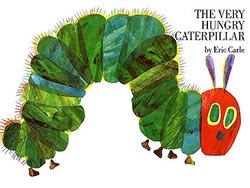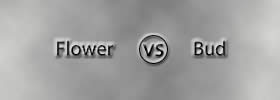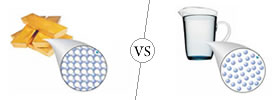Difference between Much and Very
Key difference: ‘Much’ and ‘very’ are two terms that are used often used to imply more or excess. However, the two terms differ in the manner that they are used. ‘Much’ is mainly used as an adjective, while ‘very’ is specifically used as an adverb.
 ‘Much’ and ‘very’ are two terms that are used often used to imply more or excess. However, the two terms differ in the manner that they are used. ‘Much’ is mainly used as an adjective, while ‘very’ is specifically used as an adverb. An adjective is used to modify nouns and pronouns, e.g. ‘wise’ grandmother, a ‘perfect’ score, a ‘hot’ drink, ‘cold’ water, ‘soft’ cloth, etc. An adverb, on the other hand, is used to modify verbs or clauses, e.g. run ‘fast’, drive ‘slowly’, ‘much more’ electrifying, ‘very’ demanding, etc.
‘Much’ and ‘very’ are two terms that are used often used to imply more or excess. However, the two terms differ in the manner that they are used. ‘Much’ is mainly used as an adjective, while ‘very’ is specifically used as an adverb. An adjective is used to modify nouns and pronouns, e.g. ‘wise’ grandmother, a ‘perfect’ score, a ‘hot’ drink, ‘cold’ water, ‘soft’ cloth, etc. An adverb, on the other hand, is used to modify verbs or clauses, e.g. run ‘fast’, drive ‘slowly’, ‘much more’ electrifying, ‘very’ demanding, etc.
Let’s look at the actual definition of the words. Dictionary.com defines ‘much’ as:
- Great in quantity, measure, or degree: too much cake.
- A great quantity, measure, or degree: Much of his research was unreliable.
- A great, important, or notable thing or matter: The house is not much to look at.
- To a great extent or degree; greatly; far: to talk too much; much heavier.
- Nearly, approximately, or about: This is much like the others.
‘Much’ is mainly used with uncountable nouns. Countable nouns and uncountable nouns just specify weather or not the thing that the sentence is referring to can be counted or not. For example: “How much salt is in the dish?” as opposed to “How many spoons to you need?” We cannot count the salt; hence the term ‘much’ is used, while we can most certainly count the number of spoons; hence ‘many’ is used.
Uncountable nouns are also nearly always singular, e.g. salt, cake, research, etc. Furthermore, in instances where countable and uncountable are not applicable, ‘much’ is used in only questions and in negative sentences, not positive or affirmative. For example: “I have to get lots of food for tomorrow’s party.” However, saying “I have to go get much food for tomorrow’s party” is not grammatically correct. Still, ‘much’ is fine in questions and negative sentences. “How much food do you have for tomorrow’s party?” “Not much.”
However, if ‘much’ is preceded by adverbs, such as ‘so’, ‘too’, or ‘as,’ it can be used in affirmative/positive sentences. For example: “I have to go get so much food for tomorrow’s party” or “I have so much shopping to do today.”
Examples:
- How much milk do you want in your tea?
- How much salt is there in this recipe?
- How much money will it cost me?
- This is what I get for drinking too much coffee.
- How much sleep do you get every night?
- I have so much work to do!
- That’s too much rice for me to consume.
- Train as much as possible, so you can be the best you can be.
- How much do you love me?
- How much milk do you want in your tea?
- How much salt is there in this recipe?
- She is a very funny girl. She is just too much.
 ‘Very,’ on the other hand, is much simpler. It can be used as an intensifier to make verbs, adjectives and some nouns stronger. For example: “I was very happy to help him out.” In this instance, not only was I happy, I was more than happy. Hence, ‘very’ increases the intensity of the noun, in this case ‘happiness’.
‘Very,’ on the other hand, is much simpler. It can be used as an intensifier to make verbs, adjectives and some nouns stronger. For example: “I was very happy to help him out.” In this instance, not only was I happy, I was more than happy. Hence, ‘very’ increases the intensity of the noun, in this case ‘happiness’.
Dictionary.com defines ‘very’ as:
- In a high degree; extremely; exceedingly: A giant is very tall.
- (Used as an intensive emphasizing superlatives or stressing identity or oppositeness): the Very best thing; in the very same place as before.
- Precise; particular: That is the very item we want.
- Mere: The very thought of it is distressing.
- Sheer; utter: He wept from the very joy of knowing he was safe.
- Actual: He was caught in the very act of stealing.
- Being such in the true or fullest sense of the term; extreme: the very heart of the matter.
- True; genuine; worthy of being called such: the very God; a very fool.
As ‘very’ intensifies the strength of a word, sometimes this level of intensity is not good enough, in such cases, ‘very’ can be combined with other adverbs and adjectives to further increase the intensity of the verb. For example: “I was very much happy to help him out.” This implies that I was even more than just very happy to help him out.
Examples:
- She was very tired at the end of the day.
- Mary is very tall for her age.
- Thomas is very smart indeed.
- She demanded that he return her things this very instance.
- I had hoped to become very successful.
- He aimed to be at the very top of his class.
- Harry has climbed to the very top of Mount Everest.
- She wasn’t being very truthful when I asked her about it.
- I love you very much.
Image Courtesy: ilovetypography.com, tumblr.com









Comments
Hermeny
Fri, 02/03/2017 - 21:16
Add new comment